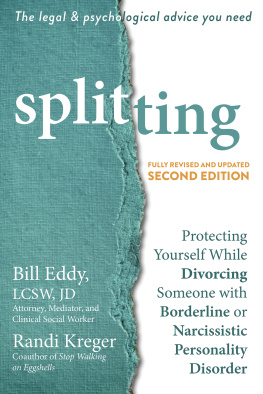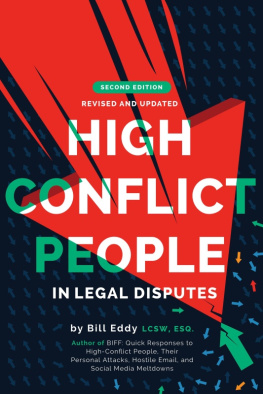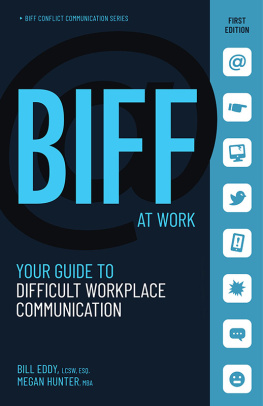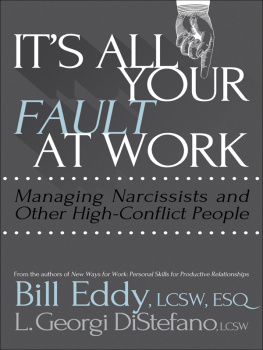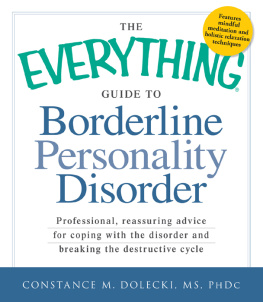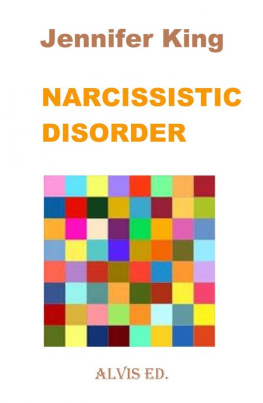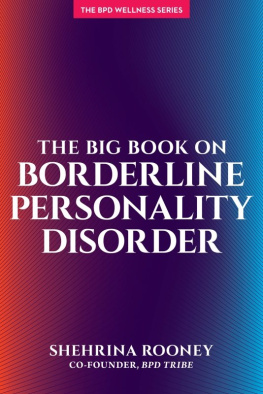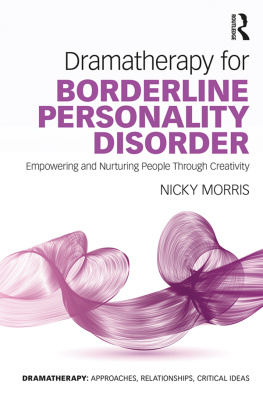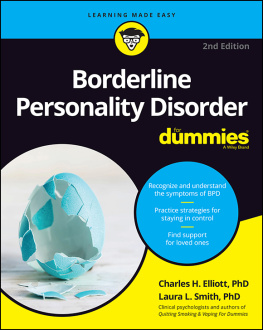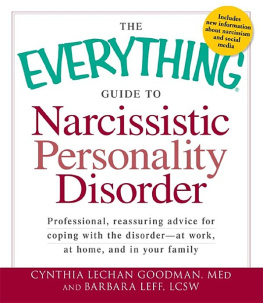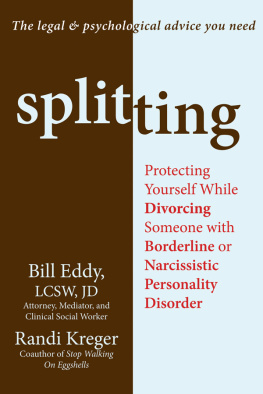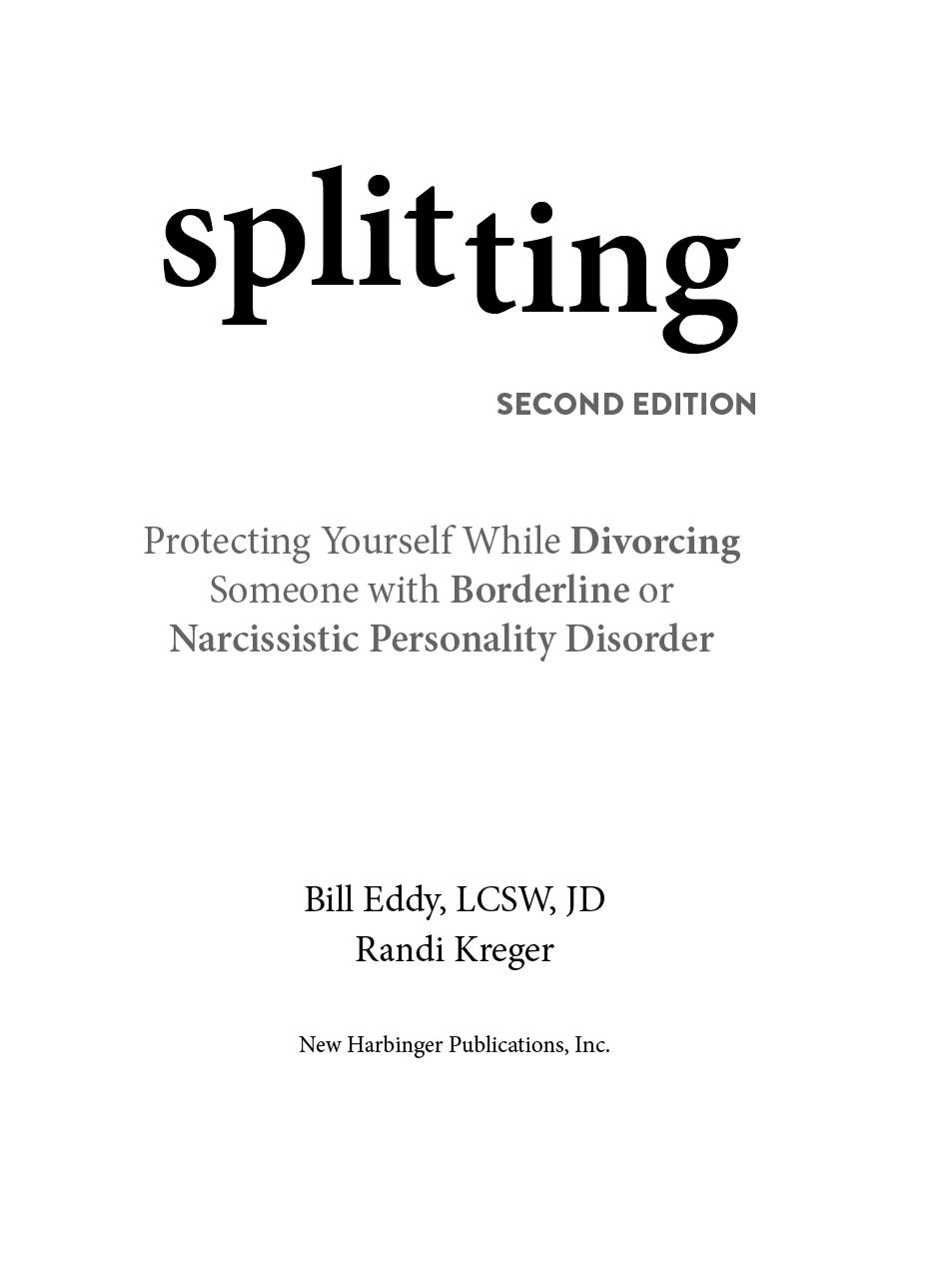Filled with concrete and actionable tips from the Quick Start Guide in the beginning to the Resources and References at the endand on every page betweenBill Eddy and Randi Kregers Splitting is quite simply THE absolute MUST resource for those going through a high-conflict divorce and the professionals who support them. I will be keeping a copy on my desk going forward!
Susan Guthrie , leading divorce attorney and mediator, cofounder of the Mosten Guthrie Academy, and host of The Divorce & Beyond Podcast
This book includes important considerations when planning for physical and emotional safety in court proceedings, particularly when a relationship has been violent and/or abusive. So often, when a person leaves a relationship where their partner has been abusive, the court system becomes the next tool to continue harassment, intimidation, and psychological abuse. My hope is that anyone in our community who feels that there is no way to safely navigate this intimidating process will find this book to be a resourceful and helpful guide.
Anna Harper-Guerrero, LMSW , executive vice president and chief strategy officer at the Emerge Center Against Domestic Abuse in Tucson, AZ
Parents who find themselves embroiled in high-conflict and court involvement with a co-parent who has a personality disorder face overwhelming challenges to resolve custody disputes and manage their ongoing co-parenting relationship. Bill and Randi not only help readers understand what drives the behaviors of borderline, narcissistic, and antisocial parents, but provide comprehensive and specific advice to help the healthier parent navigate the family court experience and alternatives to formal legal processes when dealing with these individuals. Their comprehensive, step-by-step advice when confronted with a persuasive blamer is a lifeline to parents and professionals alike.
Matthew J. Sullivan , immediate past president of the Association of Family and Conciliation Courts
Two noted authorities offer eminently practical advice that has stood the test of time. Whether in the process of breaking up, or managing the troubling aftermath of a split, this comprehensive guide will be your lifeline. Chock-full of advice to protect and empower yourself when dealing with a difficult ex. The clear strategies for effectively presenting and defending your position in court are priceless. For your own well-being, and for your children, get this book and keep it handy.
Richard A. Warshak, PhD , author of Divorce Poison
Splitting is a practical, concise guide as to what to expect when dealing with a high-conflict person in a divorce context. The authors do not sugarcoat the behaviors that will occur during a divorce involving a high-conflict person. Their charts and management suggestions are direct and easy to process. This volume is useful for anyone engaged in handling family law matters.
Retired Judge Christine Goldsmith , San Diego Superior Court, family law mediator
Eddy and Kregers Splitting is the book that those embroiled in difficult family court proceedings will call a life saver, and the book that made me realize Im not alone. Every family court participant will benefit from their expertise in understanding, managing, preparing, and ultimately succeeding in family court despite an opposing partys scorched-earth tactics.
Annette T. Burns , past president of the Association of Family and Conciliation Courts; fellow of the American Academy of Matrimonial Lawyers; attorney and family law certified specialist; and coauthor of BIFF for Coparent Communication
For anyone targeted by a persuasive blamer, this is a must-read. You will learn strategies for responding to blamers predictable and often effective court tactics. Recognizing the importance of safety planning where there is risk of domestic violence, the authors make a compelling case for mediation given how the adversarial family court system can escalate aggression. Every family lawyer should include a copy of this book with their initial consult!
Hilary A. Linton, JD, LLM , award-winning family lawyer, mediator, and arbitrator in Toronto, ON, Canada; who trains professionals how to assess and manage domestic violence
Praise for the first edition:
Splitting provides concise, clear, and invaluable advice for strategically navigating a divorce from someone who has narcissistic personality disorder (NPD) or borderline personality disorder (BPD). Following the suggestions laid out in this book will greatly increase the readers odds of having a successful marital dissolution under these difficult circumstances.
Susan Pease Gadoua, LCSW , founder and executive director of the Transition Institute of Marin, and author of Contemplating Divorce and Stronger Day by Day
Publishers Note
This publication is designed to provide accurate and authoritative information in regard to the subject matter covered. It is sold with the understanding that the publisher is not engaged in rendering psychological, financial, legal, or other professional services. If expert assistance or counseling is needed, the services of a competent professional should be sought.
Distributed in Canada by Raincoast Books
Copyright 2021 by Bill Eddy and Randi Kreger
New Harbinger Publications, Inc.
5674 Shattuck Avenue
Oakland, CA 94609
www.newharbinger.com
Cover design by Amy Shoup
Acquired by Jennye Garibaldi
Edited by Nelda Street
All Rights Reserved
Library of Congress Cataloging-in-Publication Data on file
Contents
Quick-Start Guide
Since a lot can happen suddenly and big mistakes can be made when you are separating or divorcing any difficult person, we start here with some important quick tips:
1. PLAN: Develop an emergency plan. Your partner could assault or evict you at any time. Figure out a safe place to go, get some ready cash, and think about who can help you on short notice. Copy important records and keep them in a safe place. (See chapter 5.)
2. WRITE: As soon as possible after problems and events between you and your partner (and others) occur, write down accurate details that could become issues in court. Keep a journal or other written record of anything pertinent. If other people were present, write down their names. Save email and text-message correspondence in a safe place, especially copies of hostile, harassing, and controversial exchanges. (See chapter 5.)
3. COMMUNICATE: Communicate very carefully and respectfully with your partner, because anything may be introduced into evidence. Make any texts and emails, whether initiated by you or in response to your partner, brief, informative, friendly, and firm (BIFF; see chapter 4). This is especially true if your partners texts and emails are hostile.
4. CHILDREN: Protect your children from conflicts between you and your partner. Dont say anything against your partner in front of the children, no matter how provoked you might be, because anything could become evidence. Avoid:
- Asking your children questions about the other parent
- Discussing court with your children or within their hearing
- Asking your children to compare you and your partner
- Giving your children choices between their two parents
- Exposing your children to your negative emotions
5. SELF-PROTECTION: Be aware of the risks of violence, false allegations, being evicted from your own home, getting served with papers at work, assets getting hidden, and rumors being spread. Avoid setups for violent confrontations, such as physically fighting over papers, or pushing and shoving. Indicate that you want to settle issues out of court to keep things calm, but always be prepared for the realistic possibility of court. (See chapters 4, 5, 13, and 14.)

